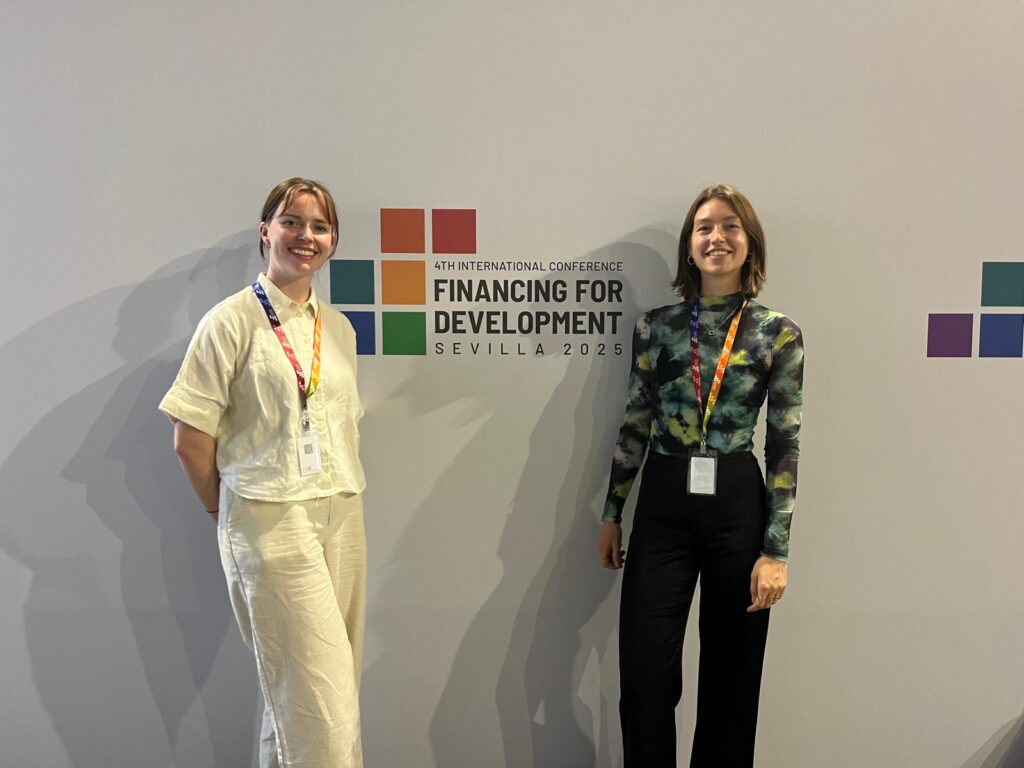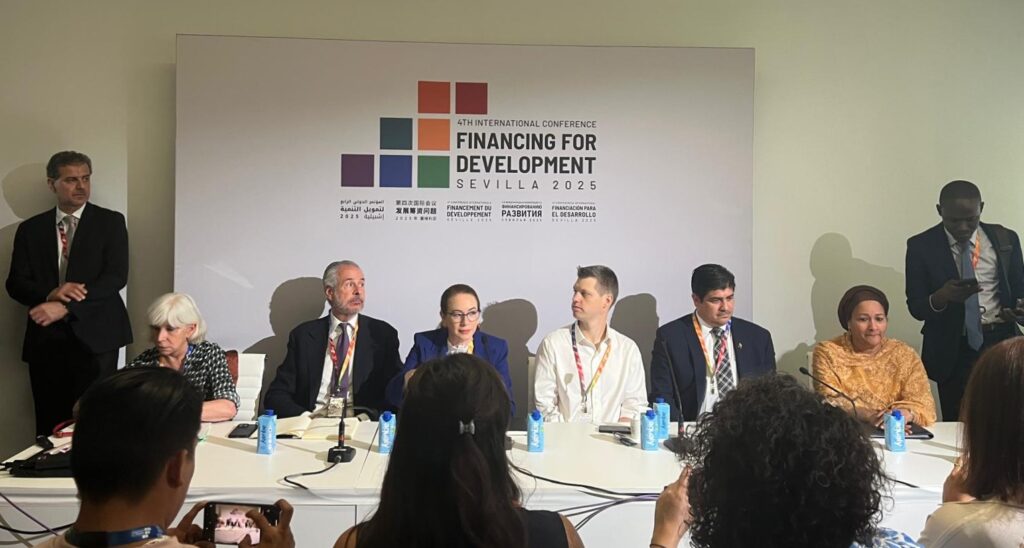The fourth International Conference on Financing for Development (FfD4) took place across four days in a sweltering Seville, which was a fitting way to bring the urgency and intensity of the conference to the fore. Across the world, temperatures are reaching unhealthy – often disastrous – levels for humans and the natural world. That’s why it’s critical that decisionmakers see the direct link between outcomes like the Compromiso de Sevilla and their impact on the global climate, which is felt most acutely by lowest income countries and minority groups that contribute the least to emissions.
Representing F20 in Seville were Celine Strufe, our Program Manager Events and Convening, and Larissa Bricis, Project Manager Communications and Outreach. They used this opportunity to meet with F20 partners and allies who were in attendance to align our 2025-26 priorities, to discuss the Compromiso de Sevilla, and to contextualise FfD4 through a philanthropic lens. Overall, this Fourth International Conference on Financing for Development was a convening that showcased multilateral consensus despite a challenging geopolitical environment, supported by resilience and a determination to make decisions matter. But it also highlighted a lack of engagement with civil society, a low-energy approach to taxation reform, and not enough ambition when it comes to urgent climate finance.

In the wake of a dramatic drop in development aid, F20 and many of our philanthropy peers saw the cursory mention of philanthropy in the Compromiso de Sevilla as a missed opportunity. Philanthropy has immense potential to complement – not replace – public funding by bridging gaps between public and private finance in development. We encourage our international network to take this as a call to action: continue working with determination to ensure philanthropy becomes an integral partner for future development finance agendas. Philanthropy doesn’t just provide finance, but collaboration, creativity, and cultural impact. For a comprehensive examination of the conference’s contribution to development finance, read this article by David Ryfisch of Germanwatch.
An integral element of this approach is, of course, multilateralism. FfD4 succeeded many times over in forming new international coalitions, and championing innovative approaches such as the Tropical Forest Forever Facility, Global Solidarity Levies Task Force, and the Debt “Pause Clause” Alliance.
In comparison to previous FfDs, there was a noticeable lack of civil society representation, despite the willingness to engage shown by 200+ civil society organisations and individuals in the Civil Society Letter to European leaders on FfD4. Pressure from CSOs is crucial to maintaining accountability and allowing minority voices to be heard. Looking ahead to the near future, we are hopeful that Brazil’s #COP30 will champion civil society’s calls to action.

Development finance, whether it refers to debt reform, climate finance mobilisation, or accountability for NDCs, should not be considered a sacrifice but rather an investment in our collective future. We are heartened to see the Sevilla Platform for Action, which is made up of 130+ initiatives, and its investment in climate, environment, and just energy transition. The proposed initiatives range in scope, from the Coalition for Tax Expenditure Reform to OPEC Fund Island Resilience Facility; the Risk to Resilience Finance Initiative to The Timbuktoo Initiative. It is crucial that we do not consider the existence of the SPA as a ticked to-do box, but as a promise to fulfil swift, tangible, and scalable climate action.